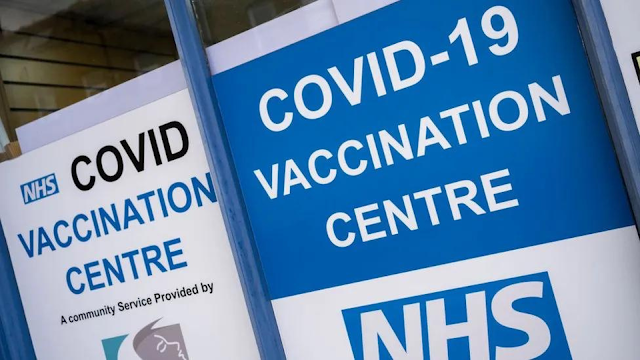The ongoing situation of COVID-19 presents ongoing difficulties, as certain individuals are facing more severe illness compared to earlier. Various factors, including declining antibody levels, the ever-changing nature of the virus, and shifts in vaccination approaches, contribute to the differing effects on people. Experts emphasize the significance of T-cells in fighting against the virus, while also acknowledging the possibility of experiencing symptoms like muscle pain and fever. While the virus continues to spread and immunity develops, the aspiration of a less severe COVID-19 infection resembling a common cold is still a goal, but for the time being, some individuals may still encounter challenges during the winter season.
Why Covid continues to floor some people
What is the current state of Covid-19? I've been thinking about this since one of my friends was shocked by how roughed up they were by it. The third time they contracted COVID-19, the illness was far worse than the first.
From his sickbed, he posted, "I thought every time you catch an illness it's supposed to be a bit better each time?"
It is true that during the pandemic, that has been said a lot. However, I am also aware of coworkers and individuals I have spoken with or interviewed at the school gates who have recently been severely impacted by COVID-19.
A common story involves a week of fever, headaches, or coughing, followed by persistent exhaustion.
It's crucial to emphasize that Covid has always presented a wide array of symptoms. Even prior to the availability of vaccines, some fortunate individuals experienced only mild illness or no symptoms at all.
For a few of us, Covid is nothing more than a minor inconvenience - not even worth rummaging through the bathroom cabinet to check for a hidden lateral flow test.
However, experts specializing in our immune system caution that Covid is still causing significant infections that may be even worse than before, leaving us incapacitated for weeks.
So, what exactly is happening?
The outcome of our encounter with Covid depends on the battle between the virus itself and our body's defenses.
The initial stages are crucial as they determine how much the virus can establish itself within our bodies and how severe the illness will be.
Nevertheless, as immunity wanes and the virus continues to evolve, the balance is shifting.
"I feel a little rough."
Immunologist Prof Eleanor Riley, based at the University of Edinburgh, recently experienced her own distressing encounter with Covid-19, which turned out to be far worse than she had anticipated.
According to Prof Riley, people's antibody levels against the virus are currently at their lowest point since the introduction of the vaccine. Antibodies act as tiny warriors that attach themselves to the virus's surface, preventing it from infiltrating our body's cells.
Having a substantial amount of antibodies enables them to swiftly eliminate the virus, resulting in a potentially brief and mild infection. However, with lower antibody levels, a larger dose of the virus manages to penetrate our defenses, leading to a more severe illness, as explained by Prof Riley.
The reason behind the relatively low antibody levels is the passage of time since many of us received our vaccinations (young and healthy individuals were typically offered two doses and a booster) or contracted the virus, which also contributes to our immunity.
Prof Peter Openshaw, affiliated with Imperial College London, emphasized the significant impact of the widespread and rapid vaccine distribution in the past. Even young adults were able to receive vaccinations, which played a crucial role in curbing the severity of the pandemic.
This year, the number of people eligible for the vaccine has decreased even further. In the previous winter, anyone over the age of 50 could receive it. However, now it is only available for those over 65, unless they belong to a high-risk group.
According to Prof Openshaw, he doesn't want to be seen as a pessimist, but he believes that many individuals will suffer from a severe illness that will leave them incapacitated for several days or even weeks. He adds that even young and healthy individuals are experiencing severe bouts of Covid, as the virus can be quite cunning, causing significant illness and sometimes leading to long-term effects known as 'long Covid'.
He also suggests that if you haven't contracted Covid in the past year, there is a high likelihood that you are susceptible to it.
The official government stance in the UK is to prioritize vaccination for those at risk of severe illness or death from Covid, which helps alleviate the strain on the National Health Service.
However, Prof Riley argues that this doesn't mean individuals under the age of 65 won't contract Covid or experience significant discomfort. He believes that by not vaccinating this group, there will be an increase in the number of people unable to work for weeks during the winter season.
Not only have decisions regarding vaccination changed, but the virus itself is also evolving.
"Minimal immunity"
Antibodies possess remarkable precision as they depend on a tight alignment between the antibody and the specific region of the virus it adheres to. As the virus undergoes evolutionary changes to alter its appearance, the effectiveness of antibodies diminishes.
According to Prof Openshaw, the current circulating viruses exhibit significant immunological differences compared to the original virus used in the initial vaccine development or the one that previously infected individuals.
He further emphasizes that a considerable number of individuals have minimal immunity against the Omicron viruses and their various strains.
If you're feeling under the weather due to Covid - or feeling worse than you have in the past - it could be due to a combination of fading antibodies and the ever-changing nature of the virus.
However, this doesn't necessarily mean that you're more likely to become seriously ill or require hospitalization.
Our immune system has another line of defense called T-cells, which come into action once an infection has already taken hold. These T-cells have been trained by previous infections and vaccines, making them less susceptible to the mutations of the virus. They identify and eliminate cells that have been infected with Covid.
"They prevent severe illness and hospitalization, but in the process of eliminating the virus, there is collateral damage that can make you feel quite rough," explains Professor Riley.
Reliance on T-cells to clear out Covid is what leads to symptoms like muscle pain, fever, and chills.
So, where does this leave the idea that Covid is heading towards becoming a mild and harmless infection?
There are four other human coronaviruses, similar to Covid, that cause symptoms of the common cold. One reason they are considered mild is because we typically contract them during childhood and continue to encounter them throughout our lives.
Professor Openshaw emphasizes that we haven't reached that point yet with Covid, but through repeated infections, we should develop natural immunity.
In the meantime, will some of us have to endure an unpleasant winter?
"I'm afraid so," says Professor Riley.
Source: BBC
Conclusion
To sum up, the ongoing hurdles presented by COVID-19 can be attributed to a mix of factors. These include the decline in antibody levels, the ever-evolving nature of the virus, and the changes in vaccination strategies. The severity of the illness can vary greatly, with some individuals experiencing more severe infections that can leave them incapacitated for weeks. The eligibility for vaccines has also decreased, adding to the unpredictability of the virus's impact. While T-cells play a crucial role in defending against severe illness, they can also inadvertently cause symptoms like muscle pain and fever. Although the ultimate goal is for COVID-19 to become a milder infection like the common cold, we have not yet reached that point. As we navigate through the winter, it remains vital to prioritize vaccination and continue research efforts to better manage and understand the challenges posed by the ever-changing nature of the virus.

.png)
.png)

.png)
.png)




